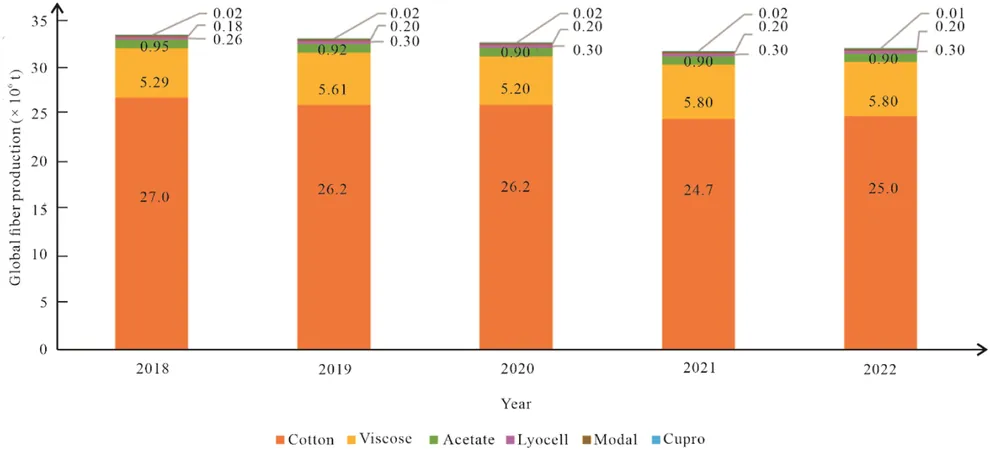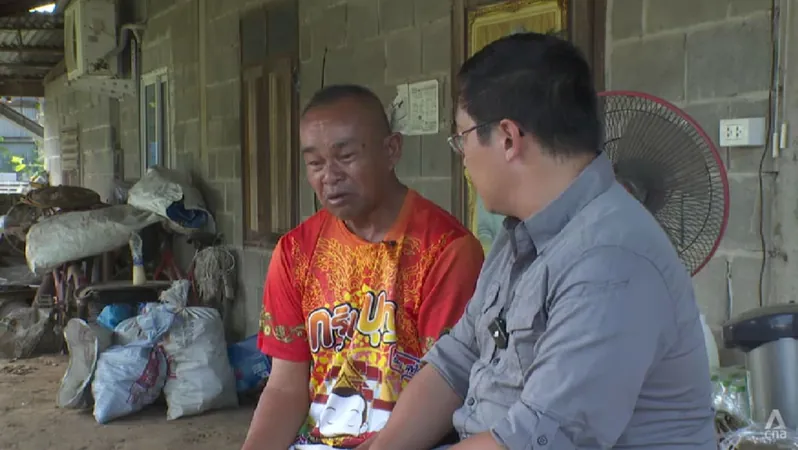
A Game Changer for Sustainable Fashion: Non-Wood Cellulose Fibers Are Here!
2024-10-07
Author: Yu
Introduction
In an era where eco-consciousness is paramount, the textile industry is at a crucial juncture, facing the pressing need for sustainability. A groundbreaking study from North Carolina State University shines a light on the potential of non-wood cellulose fibers as a revolutionary alternative for textile production, recently published in the esteemed Journal of Bioresources and Bioproducts.
Research Focus
Under the expert guidance of researchers Ryen M. Frazier and Ronalds Gonzalez, this pivotal study investigates the viability of non-wood feedstocks in the production of man-made cellulosic fibers (MMCFs). Traditionally dominated by wood-derived pulp, the sector is now challenged by rising environmental concerns tied to synthetic fibers such as polyester, which holds over 50% of the fashion market share.
Urgency for Alternatives
The urgency to explore sustainable alternatives has never been greater. With textiles being produced at an unprecedented scale, the demand for raw materials escalates, imposing significant environmental ramifications. The study emphasizes the potential of using agricultural residues and dedicated fiber crops as eco-friendly and sustainable sources to replace traditional wood inputs.
Technological Innovations
But it’s not just about sustainability; this research is also paving the way for innovation. The scientists detail cutting-edge technologies that could facilitate the transformation of non-wood dissolving pulp into textile-grade fibers. They meticulously explain various techniques—including derivatization methods, dissolution processes, and spinning parameters—offering an insightful examination of the current landscape in MMCF production.
Promising Developments
Among the most promising developments highlighted in the study is a novel method for spinning fibers from a hydrogel composed of undissolved nano/micro-fiber suspensions. This innovative technique has the potential to revolutionize the textile industry by introducing a more efficient and sustainable fiber production process.
Challenges to Overcome
While the journey forward does encounter hurdles—such as raw material impurities and necessary modifications to existing machinery—the researchers firmly believe that the integration of non-wood feedstocks into MMCF production could mitigate environmental pressures and unlock new revenue streams for farmers and industries.
Conclusion
The findings from North Carolina State University represent a major leap towards sustainable textiles, providing a detailed roadmap for the industry’s evolution. As we stand on the brink of a transformative shift, the exploration of non-wood cellulose fibers not only promises a greener future but also signifies a critically important step in combating the environmental toll of fashion. This study is indeed a call to action for companies and consumers alike to embrace and support a more sustainable approach in the world of textiles.
Call to Action
Stay tuned—this is just the beginning of a fashion revolution!


 Brasil (PT)
Brasil (PT)
 Canada (EN)
Canada (EN)
 Chile (ES)
Chile (ES)
 España (ES)
España (ES)
 France (FR)
France (FR)
 Hong Kong (EN)
Hong Kong (EN)
 Italia (IT)
Italia (IT)
 日本 (JA)
日本 (JA)
 Magyarország (HU)
Magyarország (HU)
 Norge (NO)
Norge (NO)
 Polska (PL)
Polska (PL)
 Schweiz (DE)
Schweiz (DE)
 Singapore (EN)
Singapore (EN)
 Sverige (SV)
Sverige (SV)
 Suomi (FI)
Suomi (FI)
 Türkiye (TR)
Türkiye (TR)